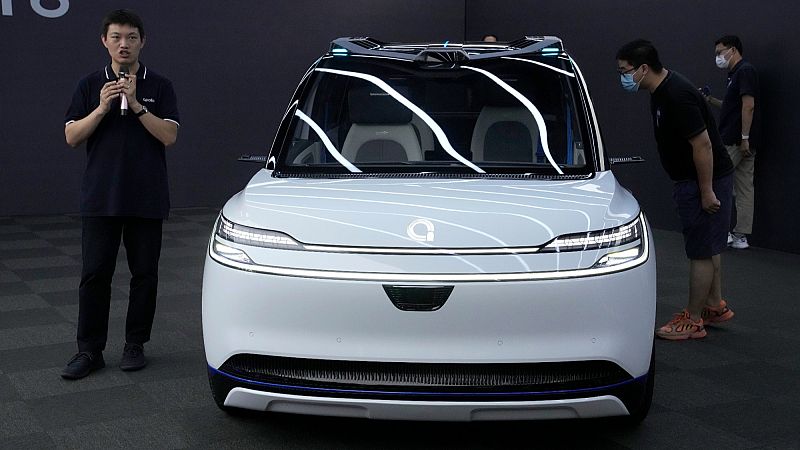China's Baidu to launch driverless taxi trials in Switzerland this December

Auto giant Baidu, China's largest search engine operator, is bringing its driverless taxi service to Europe, starting with test drives in Switzerland this December.
The trials will be run by Apollo Go, Baidu’s autonomous ride-hailing service, in partnership with PostBus, Switzerland’s national public transport operator.
The two companies plan to launch a fully driverless taxi service called “AmiGo” by early 2027 - and eventually the cars won’t even have steering wheels.
The project will use Baidu’s Apollo RT6, an electric vehicle purpose-built for autonomy. The RT6 has no driver’s seat in the traditional sense; the steering wheel can be removed and the car is designed to be summoned through an app, similar to how you'd book an Uber.
Bringing autonomous rides to Europe
For Baidu, this is its most significant step yet towards operating in Europe. The company already runs one of the world’s largest robotaxi networks in China, covering dozens of cities, including Beijing and Shenzhen.
Choosing Switzerland makes sense for a European pilot. The country’s well-regulated transport system and reputation for safety make it a good testing ground for emerging tech.
But Baidu isn’t the only major tech company with its eyes on European roads. Waymo, owned by Google’s parent company Alphabet, announced last week that it's preparing to start tests in London before launching a service next year.
“We’ve demonstrated how to responsibly scale fully autonomous ride-hailing, and we can’t wait to expand the benefits of our technology to the United Kingdom,” Waymo co-chief executive Tekedra Mawakana said in a statement.
Uber is also planning "to develop and launch public-road trials of level 4 fully autonomous vehicles in London" from 2026 with British startup Wayve.
While the idea of booking a car with no driver might still feel futuristic, these projects are moving quickly. Baidu says Apollo Go has completed more than five million rides in China already and now runs a fleet of more than 1,000 driverless vehicles across 16 cities worldwide, including Dubai, Abu Dhabi and Hong Kong.
Today

